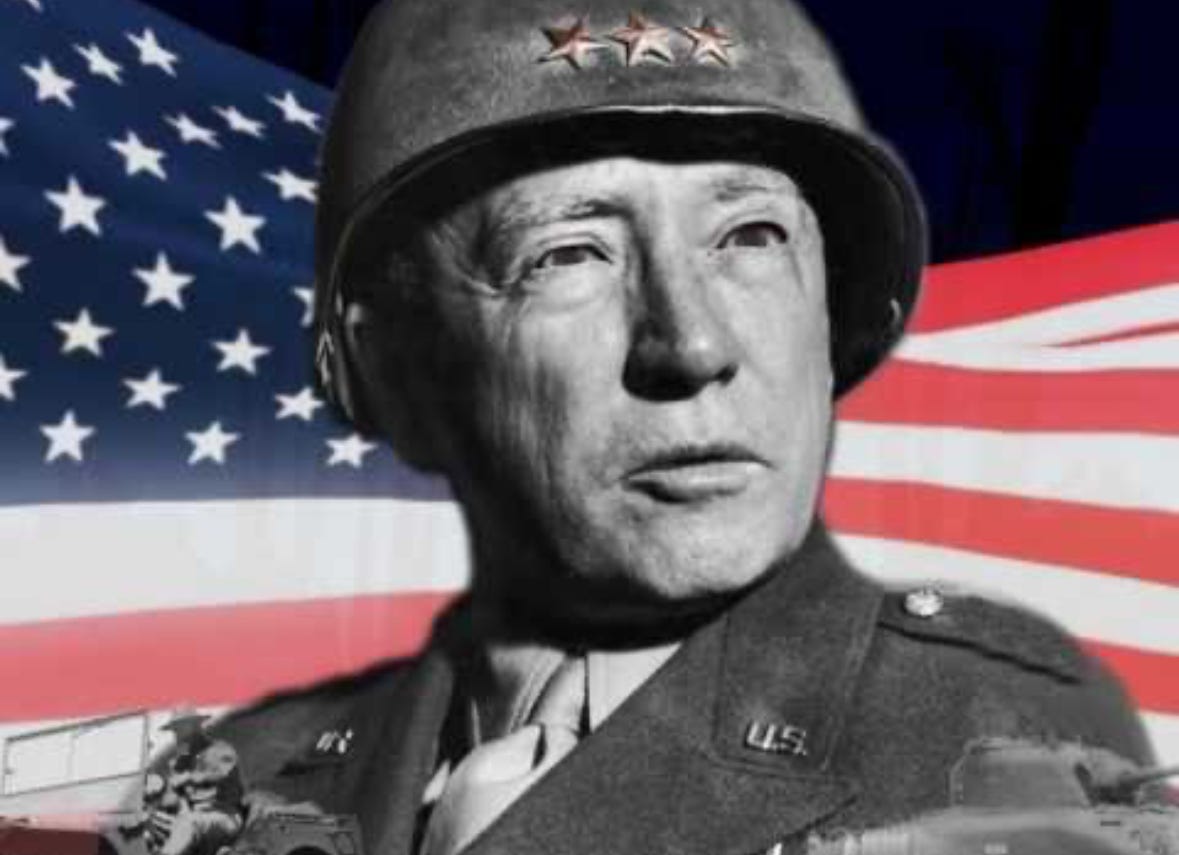“I am a soldier, I fight where I am told, and I win where I fight.” That is a quote from a man who was born on this day (Nov. 11) back in 1885, the greatest general of World War II, Army Gen. George Patton.
Patton was many things—a man of deep faith who wrote moving poetry and could cuss a blue streak, a military genius, a relentless foe, a loving husband to his wife, an admired father for his children, a patriot, a soldier. He was larger-than-life in all that he did, and it is unfortunate that his eccentric brilliance was not appreciated but resented by the exponentially less competent, talented, and virtuous men who were his political and military superiors. Patton’s attitude was, “Lead me, follow me, or get out of my way.”
According to the Museum of the American G.I., Patton “is recognized as the greatest battlefield commander and well-known American general from the modern war era.” During World War II, unlike so many other commanders, the fearless Patton led from the front (including a first-of-its-kind company of black soldiers, the “Black Panthers”). His awards included the Distinguished Service Cross, Legion of Merit, Purple Heart, and the Meritorious Service Medal. After the Normandy invasions stalled, Patton and his fast-moving 3rd Army had to go in, liberating some 45,000 square miles of France in only two months.
Unlike the other U.S. and British generals who would waste American lives or lose crucial opportunities while playing political games or foolishly hesitating, Patton was eminently practical. As he famously observed, “No bastard ever won a war by dying for his country. He won it by making the other poor dumb bastard die for his country.” If only more Allied leaders had been so interested in preventing needless casualties. Others disagreed with Patton, but he wasn’t bothered. With quintessential American individualism that would have made his Revolutionary hero ancestor Hugh Mercer proud, he said, “If everyone is thinking alike, someone isn’t thinking.”
To his son Patton wrote, “Whether it is the first or the last fight, all of us are timid. Cowards are those who let their timidity get the better of their manhood.” He could give serious advice but also be memorably humorous, even about war. “May God have mercy upon my enemies, because I won’t,” he declared.
The political correctness of his far less capable commanders and peers, including Eisenhower and Bradley, led to Patton’s being given far less latitude and command during WWII than he should have received; many thousands of men would probably not have died in North Africa, for instance, if Patton instead of the disastrous generals Montgomery and Eisenhower had been in charge. After Patton slapped a couple of soldiers in the hospital for “battle fatigue”—perhaps a difficult condition to deal with, but hardly something that commanders can afford to indulge when needing every able-bodied man to help fight for survival—he was wrongly castigated and punished.
Patton was the greatest Allied general of WWII, and it is unfortunate that utterly incompetent politicians like Eisenhower and Montgomery should get so much praise while Patton should still be maligned or overlooked.
Gen. George Patton died in a hospital after a suspicious vehicle accident in Germany in 1945. There is evidence, including testimony from a man who claimed to have been involved in the plot, that Patton was assassinated by American high command (possibly by poison while he was in the hospital).
But while they killed him, they could not kill his legacy. The Allied victory in WWII was due in no small part to the courage, patriotism, determination, and ingenuity of Gen. George Patton. How fitting that his birthday is now Veterans Day, since he dedicated his whole life and ultimately lost it in military service to his country.






